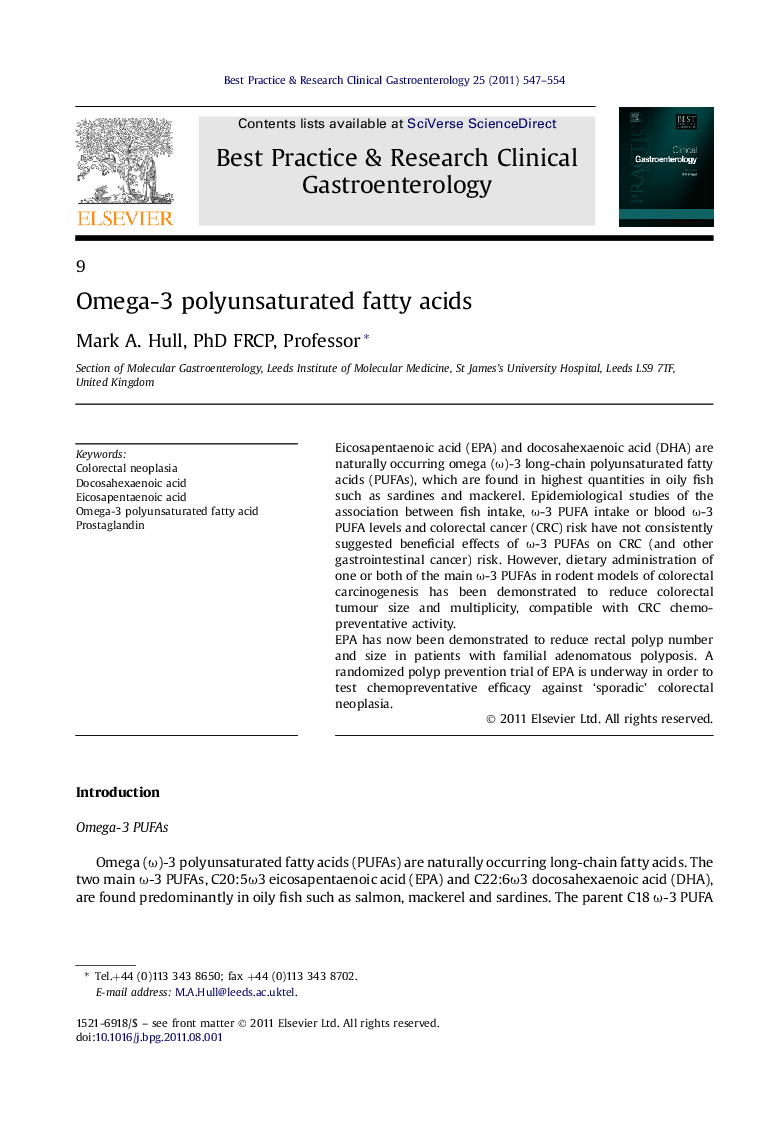| Article ID | Journal | Published Year | Pages | File Type |
|---|---|---|---|---|
| 3254218 | Best Practice & Research Clinical Gastroenterology | 2011 | 8 Pages |
Eicosapentaenoic acid (EPA) and docosahexaenoic acid (DHA) are naturally occurring omega (ω)-3 long-chain polyunsaturated fatty acids (PUFAs), which are found in highest quantities in oily fish such as sardines and mackerel. Epidemiological studies of the association between fish intake, ω-3 PUFA intake or blood ω-3 PUFA levels and colorectal cancer (CRC) risk have not consistently suggested beneficial effects of ω-3 PUFAs on CRC (and other gastrointestinal cancer) risk. However, dietary administration of one or both of the main ω-3 PUFAs in rodent models of colorectal carcinogenesis has been demonstrated to reduce colorectal tumour size and multiplicity, compatible with CRC chemopreventative activity.EPA has now been demonstrated to reduce rectal polyp number and size in patients with familial adenomatous polyposis. A randomized polyp prevention trial of EPA is underway in order to test chemopreventative efficacy against ‘sporadic’ colorectal neoplasia.
